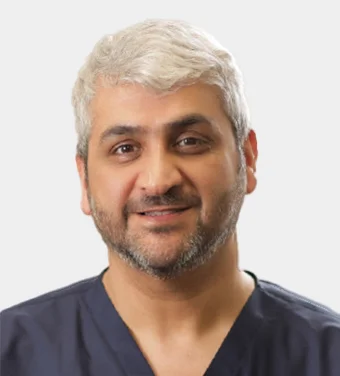
Tailored for individuals grappling with spasticity from various neurological conditions, this system administers baclofen directly to the spinal cord, offering a more effective and less invasive treatment approach. This cutting-edge therapy can bring about a substantial improvement in managing neurological condition and enhancing overall wellbeing.
What is Intrathecal Baclofen Pump ?
Baclofen is a muscle relaxant medicine commonly used to decrease spasticity related to multiple sclerosis, spinal cord injuries, or other neurological diseases. An intrathecal delivery system, which provides the baclofen right to the target site in the spinal cord, is an effective way to deliver the medicine.
What is Spasticity ?
Spasticity is a movement disorder that can occur in conditions which affect the brain or the spinal cord, such as multiple sclerosis, stroke, cerebral palsy, spinal cord injury, or brain injury. Spasticity is caused by an imbalance between signals that
inhibit or stimulate the spinal cord. This results in hyperexcitable stretch reflexes, increased muscle tone, and involuntary movements.
What are the symptoms of Spasticity?
Spasticity causes muscle stiffness and tightness, which interferes with voluntary movements. Spasticity can also cause muscle spasms (jerky involuntary movements) or clonus (repetitive involuntary movement). Stiffness and spasms are often
bothersome and sometimes painful, and they interfere with the ability to carry out daily activities. Spasms may also disrupt sleep and increase daytime fatigue. When spasticity is severe, contractures (fixed limitations of range of motion) may develop.
How can Spasticity be treated ?
Stretching, exercise, and rehabilitation are the first line of interventions for spasticity. Oral medications are often effective, but may cause side effects such as drowsiness. When spasticity affects only a few muscles, local injections of botulinum toxin can be helpful. When spasticity is diffuse and severe, intrathecal baclofen (Lioresal®) (ITB) may be a good treatment option.
How can I know if I am a suitable candidate for Intrathecal Baclofen (ITB) treatment ?
- If you have severe spasticity, and oral medications are not helpful, your treating physician may refer you for a consultation to evaluate if ITB could be a good option for you. Detailed clinical assessments are performed, usually by a physician and physical/occupational therapists. These professionals provide information about ITB for discussion.
- A test injection is then performed to further evaluate the appropriateness of ITB. The test consists of a spinal tap, with a small dose of baclofen injected into the spinal fluid. A few hours later, the effects of the medication are evaluated. These effects are temporary, but provide very useful information that help with the decision process.
If the test for the Baclofen Pump is successful, what are the next steps in the treatment process ?
If the test is successful, you will be referred to a neurosurgeon who will implant the baclofen pump system. After the surgery, you will stay in the hospital for a short time. In some cases, inpatient rehabilitation is needed to adjust the pump and perform functional training before returning home. In all cases, outpatient or home rehabilitation is needed to optimize the benefits of ITB.
How is a Baclofen Pump typically managed and maintained ?
- The pump needs to be refilled at regular intervals (usually every 1 to 6 months) by a trained healthcare professional who possesses the equipment needed. The pump is refilled by inserting a needle through the skin into a refill port on the pump.
- In some cases the refills can be done at home, but follow-up visits are needed one to two times per year to ensure that the therapy is working appropriately. The dose of baclofen can be adjusted at any time, but the adjustment must be done by a trained professional.
- When the battery approaches the end of its life, the pump needs to be replaced (but not the catheter). When a problem with the baclofen pump is suspected, medical attention should be sought as soon as possible
What are the advantages of ITB compared to taking Baclofen orally ?
- ITB (Intrathecal Baclofen Therapy) is typically much more effective in controlling symptoms of spasticity because it delivers the medication directly to the spinal cord. With ITB, medication is administered continuously, day and night, providing steadier symptom relief.
- ITB generally causes fewer side effects than oral baclofen, especially at the high doses needed to treat severe spasticity.
- The programming of ITB is highly flexible, allowing for more precise dosing of baclofen and the capability to administer different doses at different times of the day.
- Compared to other surgical treatments, ITB is reversible; the pump can be deactivated and removed if necessary.
What are the potential risks and adverse effects of ITB ?
- The baclofen pump system requires surgical implantation under anesthesia, carrying the usual risks associated with surgery.
- Complications more specific to intrathecal baclofen therapy (ITB) include the risk of infection around the device and the risk of device malfunction.
- Instances of baclofen withdrawal, due to abrupt interruption of baclofen delivery via the pump, and baclofen overdose, often resulting from human error, have also been reported with ITB.
- Although serious complications from ITB are infrequent, they are generally reversible, provided they are diagnosed and treated promptly.
Our team of experts that make it possible
Meet the team of highly specialised and experienced neurosurgeons, neurologists, orthopedicians, and other experts in the field of neurology and spine care. Our team is dedicated to providing personalised and compassionate care to each patient, with the goal of helping them achieve the best possible outcomes.

Dr. Sachin Kandhari
Senior Neurosurgeon

Dr. Dewaker Sharma
Senior Neurosurgeon

Dr. Vikas Gupta
Senior Neurosurgeon

Dr. Gaurav Sharma
Senior Sports Physiotherapist

Dr. Sachin Samuel
Senior Neuro Physiotherapist

Dr. Ankur Dhandha
Anaesthetist

Dr Ankush Arora
Anaesthetist

Dr Amarjyoti Yadav
Anaesthetist
IBS Hospital Empowers Your Treatment with Cutting-edge Technology
We continuously incorporate cutting-edge technologies from around the world into our offerings, such as a surgical system that allows for precise and confident complex procedures. We use magnetic stimulation to treat certain neurological conditions and create personalised brain maps for tailored treatment plans. Nerve monitoring during surgeries ensures the nervous system is not compromised, and a robotic exoskeleton aids in mobility issues. Our goal at IBS Hospital is to provide the best care possible, utilising the latest and most innovative technologies available.


